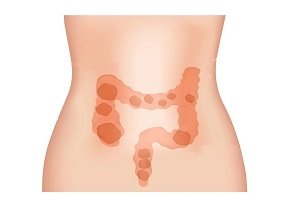Browsing: Constipation
Comprehensive Information, Resources, and Support on Constipation
Living with chronic constipation is not easy. It will suppress your appetite as well as make you uncomfortable. The digestive…
Constipation occurs when the colon absorbs too much water from the stool thus making it hard and dry. This happens when the muscles in the colon contract slowly, and the stool too moves slowly. Constipation is generally not caused by one particular condition and it may be difficult to identify the exact cause.
Types of Constipation
Constipation is the passage of very small amounts of hard, dry bowel movements, usually fewer than three times a week. It is very difficult and painful to have a bowel movement in people who are constipated. It can be chronic, sometimes severe, and has a significant; debilitating effect on the quality of life. The normal range of passing the stools is from three times daily to three times a week.
How to Prevent Constipation?
Constipation can be easily prevented by making certain diet and lifestyle changes. Food content and eating timing have a major effect on your bowel movements. Retraining toilet habits, adding fiber to the diet, and exercising regularly can be quite helpful to avoid the situation. The factors that help prevent the constipation are discussed in the article:
Home Remedies for Constipation
Constipation can leave you feeling bloated, lazy and completely uncomfortable. There are certain home remedies and natural foods that can help in digestion, make bowel movement easy and regular, and feel you better. These foods are healthy and rich in fiber and have other positive benefits too and are good to add in the daily meals.
Constipation is a health condition that affects the digestive system of your body and is characterized by less frequent bowel movements, abdominal pain, bloating, and discomfort. If a person does not produce bowel movements for three days or more he might be constipated. In severe cases, constipation can be painful or even devastating.
In most cases, constipation resolves itself without any treatment. But in severe cases, treatment is necessary for a balanced life. The treatment of constipation includes such as bowel training. Bowel training is the most important aspect of treating constipation. Read more about what can you do for constipation relief.
Constipation Basics: Learn What Should You Know About Constipation
Constipation is a condition of the digestive system in which an individual has hard feces that are difficult to pass. Mostly, this occurs when your colon has absorbed too much water from the food that stays in the colon. The slower the food moves through the digestive tract, the more water is absorbed by the colon.










